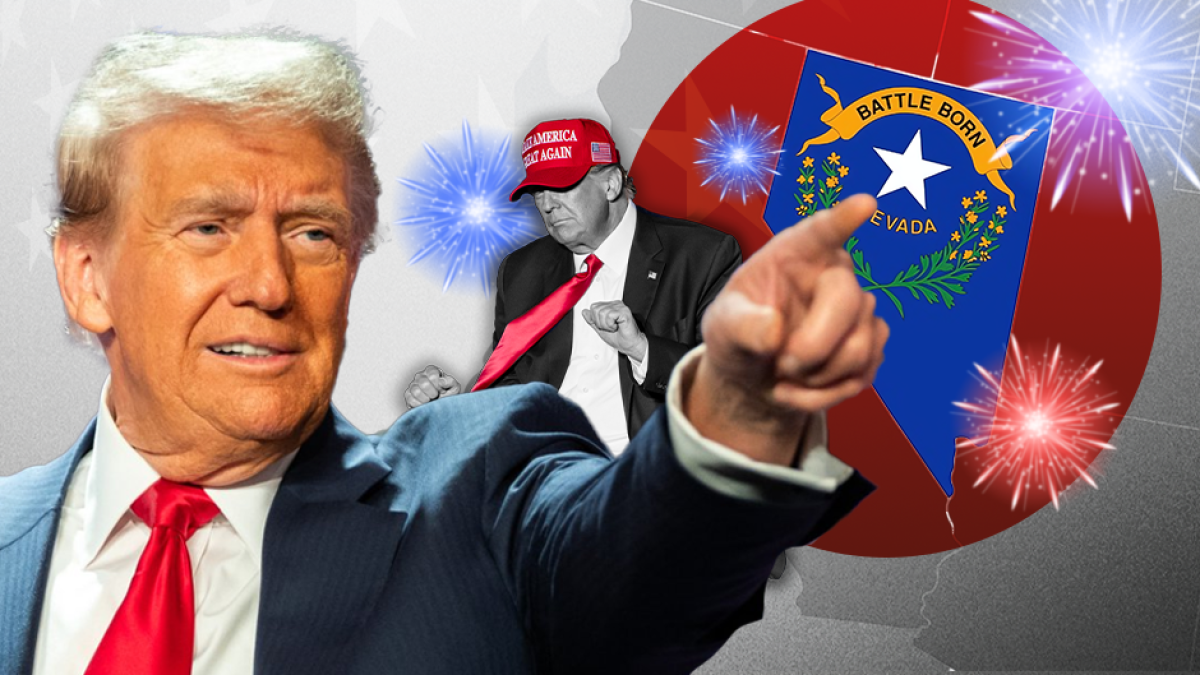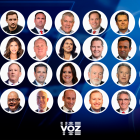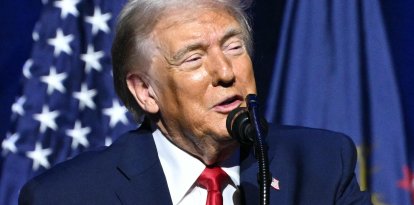How did Trump become the first Republican to win Nevada in twenty years? Interview with Congressman Mark Amodei
The former president defeated Kamala Harris in the Silver State by the largest margin for a Republican since the 2000 election.

Trump ganó en Nevada por tres puntos porcentuales/ Diseño Voz Media- Alison Roberts
Donald Trump succeeded in bringing the Republican Party back to winning in Nevada after twenty years. After two failed attempts in 2016 and 2020, the president-elect became the first Republican to win in the Nevada since George W. Bush in 2004. He also achieved the largest margin of victory for a GOP presidential candidate since 2000.
Nevada was a fairly even state during the 20th century, with equal numbers of victories for Democrats and Republicans. However, Democrats won there in the last three presidential elections, so Trump's victory broke a 12-year Democratic trend in the state.
In this context, the question arises: how did he do it? To answer this question VOZ interviewed the only Republican to currently serve Nevada as a member of Congress, Mark Amodei.
With a history in the state Legislature, Amodei has represented Nevada's second congressional district in the House of Representatives since 2011. He is currently a member of the Budget Appropriations Committee and serves as a resident on the Homeland Security Subcommittee.
How did Trump win Nevada?
In recent election cycles, pollsters underestimated Republican support in the Silver State, especially in 2016 and 2022. Trump defeated Kamala Harris by a 3.1-point margin last Nov. 5, taking six electoral votes.
Amodei campaigned both in his district and statewide over the past few months and claimed that the economy and the migration crisis were the two issues most mentioned by voters.
"The top priorities were the economy, all aspects of that, the border in terms of the fact that it was open. It's not that America is a country that is not welcoming, but they are a country of laws and want to think that there are rules that apply and processes to go through, which has been the immigration, it's been our immigration culture for a long time. And there was a very definite perception that that culture had changed and that the rules had basically been ignored or set aside," the congressman explained.
Amodei placed special emphasis on prices as a very sensitive variable among voters in the state.
">Welcome back to Appropriations 101! 😎🇺🇸 Thank you to my good friend and colleague, @MarkAmodeiNV2, the Chairman of the Homeland Security @HouseAppropsGOP Subcommittee, for joining!
— Congressman Mike Simpson (@CongMikeSimpson) November 7, 2024
Learn more about how this critical subcommittee keeps Americans and the homeland safe. pic.twitter.com/Cce1sPDW6I
"When people say people vote their pocketbook, what's the economic situation? When you put a series of things together, which is housing is is incredibly unaffordable right now, whether you're renting or buying, energy costs, if you're trying to fill up your vehicle with gas, if you're trying to heat your home or your apartment, all very high," he added.
"So they said, hey, we're going to make a change, we're going to let this guy put him back in charge, because even though some days his personality may rub some people the wrong way, the work that he did in terms of trade, foreign relations, the economy, all those sorts of things, is now seen by comparison with the last four years," the Republican continued.
The importance of the Hispanic vote in Nevada
According to the latest census, Nevada is the fourth state with the highest percentage of Hispanic population in the country, behind only New Mexico, California and Texas, in that order.
For Congressman Amodei, this demographic was very important when analyzing Trump's victory in the state.
Although dragged down by the prices he mentioned earlier, the Republican mentioned the border situation as a key factor in the Hispanic vote in this election.
"A lot of those people that came in have have respect for the fact and pride in the fact that when they came, they came in accordance with whatever the rules were. And and they were they were very unhappy that, you know, hey, if I had to follow the rules, so should everybody else. And so that wasn't the perception. So they paid, they played a key role in giving Donald Trump Nevada for the first time in the three times that he ran," he said.
What to expect from the next Congress?
Last Nov. 5, Republicans won the White House, Senate and House of Representatives, so they are expected to try to pass the bulk of their agenda during the next Congress, which runs from January 2025 to January 2027.
Amodei emphasized the first 100 days of the second Trump administration, which will require working very hard and not letting "the grass grow under your feet."
He said he hopes his Republican colleagues can work on "meaningful legislation on the border wall," as well as on the Border Patrol, energy and also foreign trade.




























